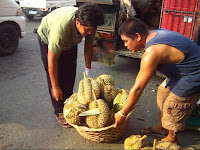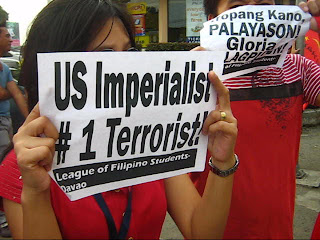 Perhaps, you should stay here for a while. It feels better to work with editors who treat you like a real person.
Perhaps, you should stay here for a while. It feels better to work with editors who treat you like a real person. Quite unlike those people you knew who rushed you into writing something they thought was easy simply because they didn’t know anything about it and you were just as stupid to oblige.
The last time you left this job for such a thing as a book project, they let you climb the highest mountain in Davao Oriental on a habalhabal.
The driver got so pissed off when you insisted getting off the motorcycle instead of sticking it out with him down the slope that you swear was an 80 per cent incline. You went there supposedly to edit a book, didn’t you, and not to commit suicide!
But when you reached the highway and you were back on this habalhabal, the driver revved up the engine and sped along the road like crazy. All the people by the roadside of Caraga were turning their heads to see what was going on and because the driver was already flying so maddeningly fast, you only managed to catch a glimpse of the look of concern on their faces.
The driver only wanted to scare you, you knew even without looking. He thought you did not have the right to complain because you were a visitor. It’s part of the customs and traditions of the place, is it not? You must do everything they wanted to—including getting killed in a stupid habalhabal ride, maybe?
As soon as you reached their house, somebody asked, ‘Were you scared? That was so fast!’ and you managed to say, ‘Was that the fastest you could get?’
 You were seething with fury. When, days later, you told a man about it, the man said, ‘You should have complained, you should have gotten off that motorcycle, you should have told them how you felt!’
You were seething with fury. When, days later, you told a man about it, the man said, ‘You should have complained, you should have gotten off that motorcycle, you should have told them how you felt!’ But you were just a woman they were trying to scare. You knew you would detest the look of triumph on their faces. So, all you did was to tell them their fastest was not even fast enough for you.
It was a totally different kind of job. They made you travel over 24 hours on the road non stop from Davao to Bukidnon to Cagayan de Oro, to Iligan where you crossed the Mukas wharf near Kulambogan on your way to Ozamis, going all the way to Oroquieta and the small towns leading to Dapitan and when you reached Dipolog, you could not even sleep a wink because they had to start the meeting where you were supposed to interview, or at least ask questions from, the leaders they gathered. You could no longer remember what questions you managed to ask because you were so numb and dumb from sleeplessness and exhaustion after more than 24 hours on the road.
They didn’t notice, though. They were so goddamned dedicated to their work, they thought it was natural for you to travel all the way from the other side of Mindanao and still be up and about to ask all the brilliant questions!
When they were about to start the meeting a latecomer arrived and everyone decided to let her have a nap because she traveled three hours on the road. Three hours against your 24 hours!
 When you got too tired to stay awake, they just let you sleep on a hammock while flies buzzed around the benches and tables scattered over the uneven dirt floor. The people you met there were patient, too. Their leader did not make it because he got no money for the fare, said the woman you talked to. The sound of your last conversation mingled with the buzzing of flies in your dream.
When you got too tired to stay awake, they just let you sleep on a hammock while flies buzzed around the benches and tables scattered over the uneven dirt floor. The people you met there were patient, too. Their leader did not make it because he got no money for the fare, said the woman you talked to. The sound of your last conversation mingled with the buzzing of flies in your dream.




.jpg)
.jpg)

















